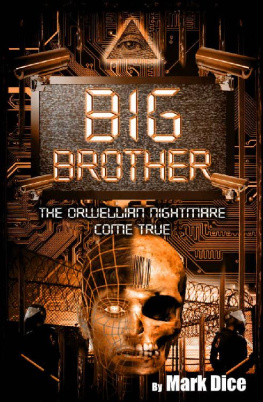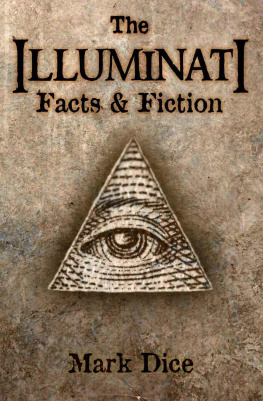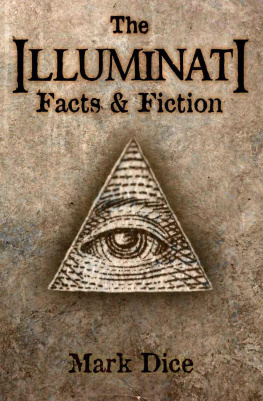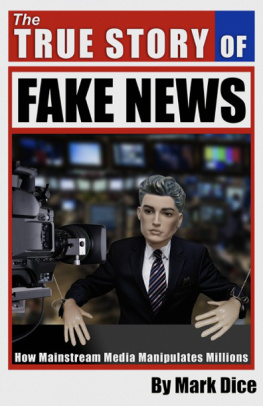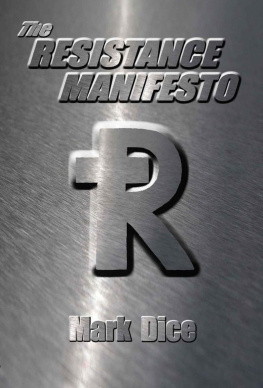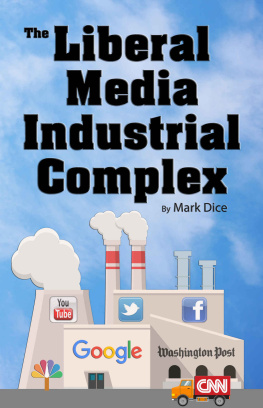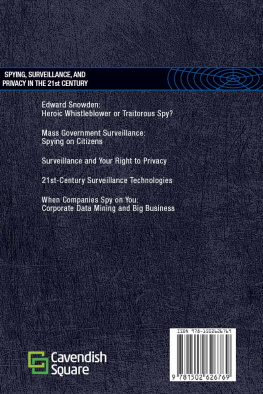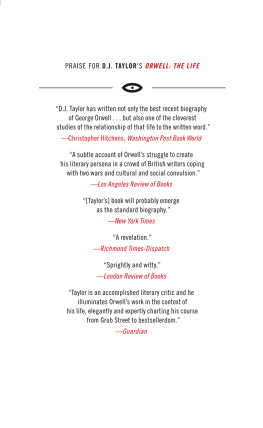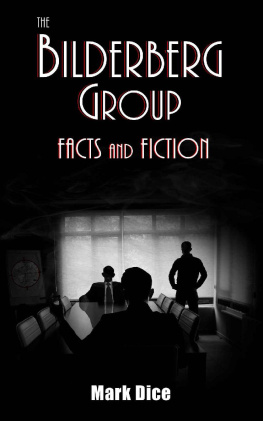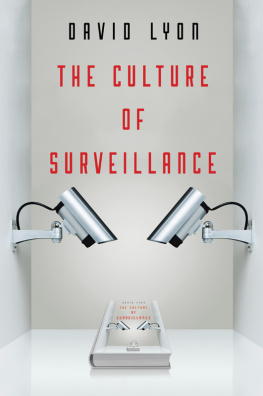Introduction
When George Orwell (pen name of Eric Blair) first published his famous novel, Nineteen Eighty-Four , it was the year 1949, and it told a dark story of what he envisioned life may be like in the futurein the year 1984. His book, as well as his name, have become synonymous with privacy concerns involving technology and also an all-powerful, oppressive ruling elite that strictly governs the activities of the population with an iron fist.
Orwells book is where we get the term Big Brother from, such as when people say Big Brother is watching you. When people say this, theyre referring to the omniscient surveillance system described in the novel that continuously watched and listened to peopleeven in their own homes. When we call something Orwellian to describe the invasiveness of certain technology or government policies, we are also referring to George Orwells nightmarish vision he described in his novel. There are several other terms that Orwell himself coined in Nineteen Eighty-Four, such as doublethink, thoughtcrime, and memory hole , which have also become part of our vernacular.
Even if you have not read the book or seen the film, you are still undoubtedly familiar with the issues that make up the storyline, such as the high-tech surveillance system watching and listening to everyone in order to keep them in line with the government (called the Party in the novel). You are probably also familiar with the concept of a small elite ruling class (what Orwell calls the Inner Party) living in luxury and wielding unimaginable power over lower level citizens. In the novel, people have lost their freedom, their critical thinking skills, and even the ability to love due to the cultural depths society has sunk to as a result of Big Brothers control. The reason Nineteen Eighty-Four remains so popular, and the reason society has adopted vocabulary from the book, is because it serves as more than merely a fictional novel for the readers entertainment. The novel served (and continues to serve) as a stark warning of what the future may hold if we dont resist invasive technology and oppressive government policies, or if the population at large becomes so lost in a world of pop culture, sports entertainment, or our own selfish desires, that we simply dont care.
Big Brother: The Orwellian Nightmare Come True looks at technology that now exists or is under development and will exist in the near future, that threatens to make our world just as horrific or even worse than the world George Orwell described. This book will provide information from mainstream news sources, industry experts, and even patent numbers of the most invasive and sinister Orwellian devices anyone could dream of. We will also look at actual government programs and policies that seem as if they came right out of Orwells dark imagination, such as the government secretly paying mainstream media reporters to act as gate-keepers and propagandists for the establishment, and the FBI illegally spying on and smearing peaceful political activists who were seen as problematic.
This book is certainly not anti-technology. Technology is a fantastic tool which can benefit those who use it, or harm them, depending on the intentions of the person designing it or using it. Technology has brought us amazing inventions that would seem supernatural to civilizations that lived just a few hundred years ago. Arthur C. Clarke, the author of 2001 a Space Odyssey , was correct when he said, Any sufficiently advanced technology is indistinguishable from magic.
While this magical technology has brought us the convenience of calling our friends or family on our cell phones, allowing us to talk with them from virtually anywhere in the world, and given us the ability to watch events on the other side of the earth unfold live on television, and other wonders such as the Internet, DVR recorders, YouTube, Excel spread sheets, word processors, e-mail, Facebook, and more; it has also brought us identity theft, illegal wiretaps, Peeping Toms using hidden video cameras, cyber stalkers, and worse. If you have ever left your cell phone at home when youve left the house for the day, youve realized how much we depend on technology for what have become common and necessary activities. If youve ever been at home when the electricity unexpectedly goes out, you have also realized how much we take for granted in our modern world.
Unfortunately, with tremendous advances in technology often come unforeseen consequences. Nobody could have envisioned young teenage girls taking nude photos of themselves with their cell phone cameras and sending them to their boyfriends, and then having the boyfriends forward them to others, eventually ending up on the cell phone of someone over the age of eighteen, resulting in what is essentially child pornography in their possession. The music and film industries certainly didnt anticipate millions of Internet users downloading music and movies for free, sometimes before the products are even officially released. And when Albert Einstein was searching for the laws of physics to learn how our Universe functioned, he could have never imagined that his work would be used to design weapons capable of destroying the entire earth. It seems that the dark minds of men in power always strive to build sinister devices designed to enable them to hold onto their power, no matter how disastrous the consequences.
In the following pages we will look at some of the sinister inventions currently in operation, as well as the ones on the drawing boards, and the ones mad scientists are hoping to one day create. Facial recognition video cameras that can pick you out of a crowd of tens of thousands of people in a split second, machines that can read your mind, high-tech killer-robots, psychotronic weapons that can literally put voices in peoples heads, and more. You will see beyond a doubt that George Orwells description of Big Brother was chillingly accurate, and perhaps not as horrific as the reality we may one day face. Like a Pandoras Box, once much of this technology is created, there will be little hope of stopping it or even regulating it.
While some of the technology discussed in this book is known to exist in small and specialized industries (and to a growing extent the mainstream public), one must wonder about the technology that is classified as top secret and the experiments that go on in the hidden laboratories funded by the deep pockets of government. Knowing just a small fraction of the past abuses by the United States government (and others around the world) regarding human test subjects and goals, we should all be concerned about the continued illegal and immoral research and experiments that are undoubtedly continuing to occur in secret.
If one reads old Popular Mechanics magazines from the 1950s, one can realize how wrong, and even silly, the techno-utopian dreamers were in the past. Many were led to believe that by the twenty-first century we would all be living lives of luxury like the Jetsons, with large blocks of free time to enjoy ourselves as we had most manual labor and menial tasks taken care of by robots and computers. Yet more than a decade into the twenty-first century, we still need to spend time cooking and cleaning, and commuting to work and raising the kids, and fixing up the house and countless other tasks and obligations that are required of us in our daily lives.
Our cars must still continuously be maintained, the oil needs to be changed, the engine serviced, the tires rotated and replaced, and the average vehicle now costs as much as a house did for people just two generations ago. The grass still needs to be cut, the bushes need to be trimmed, and things around the house continue to break and need to be fixed or replaced. People are working longer hours, having less time with their families, having to retire later in life, and are having less savings than past generations. Where is this techno-utopia that so many had promised would come in the near future?

